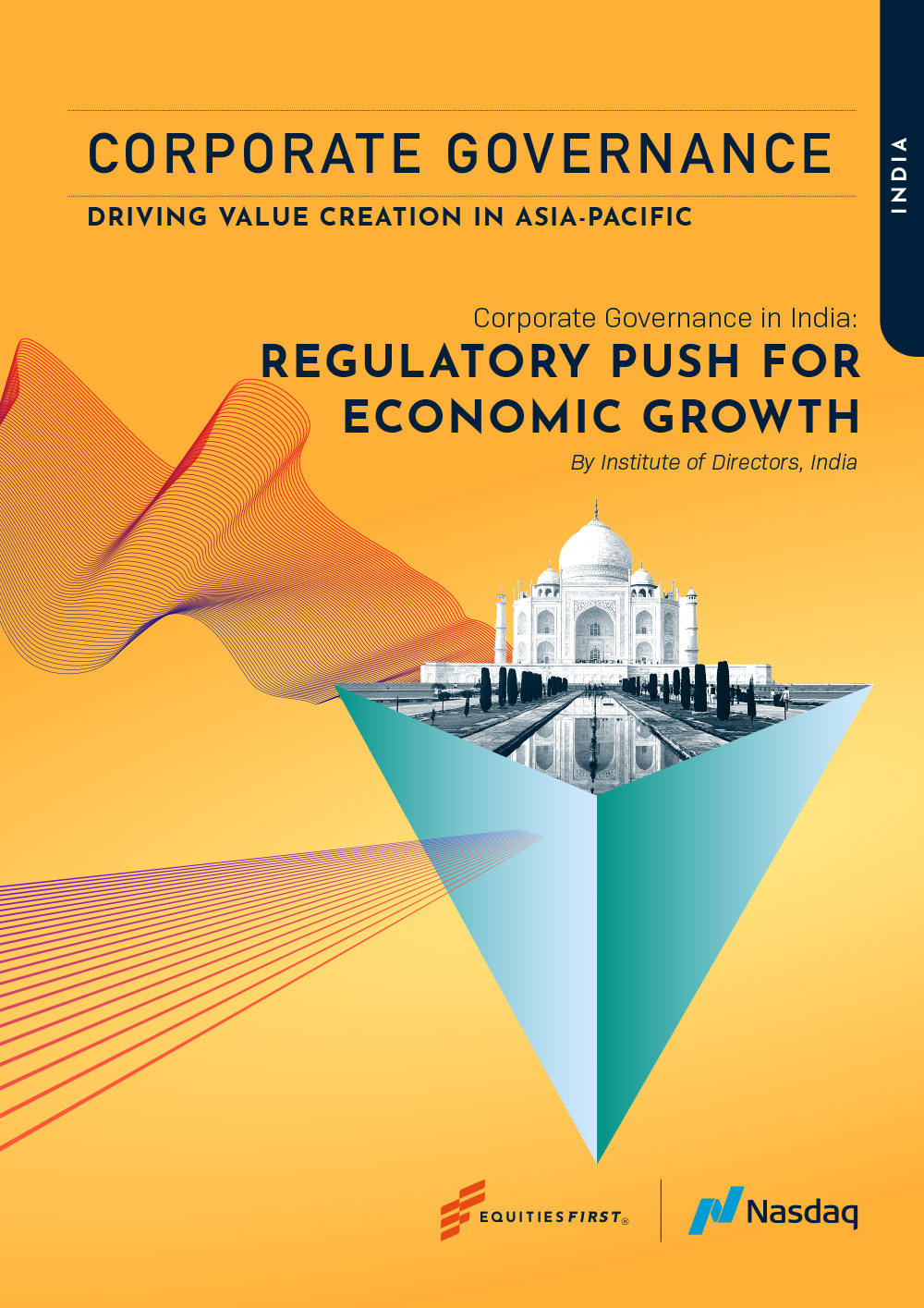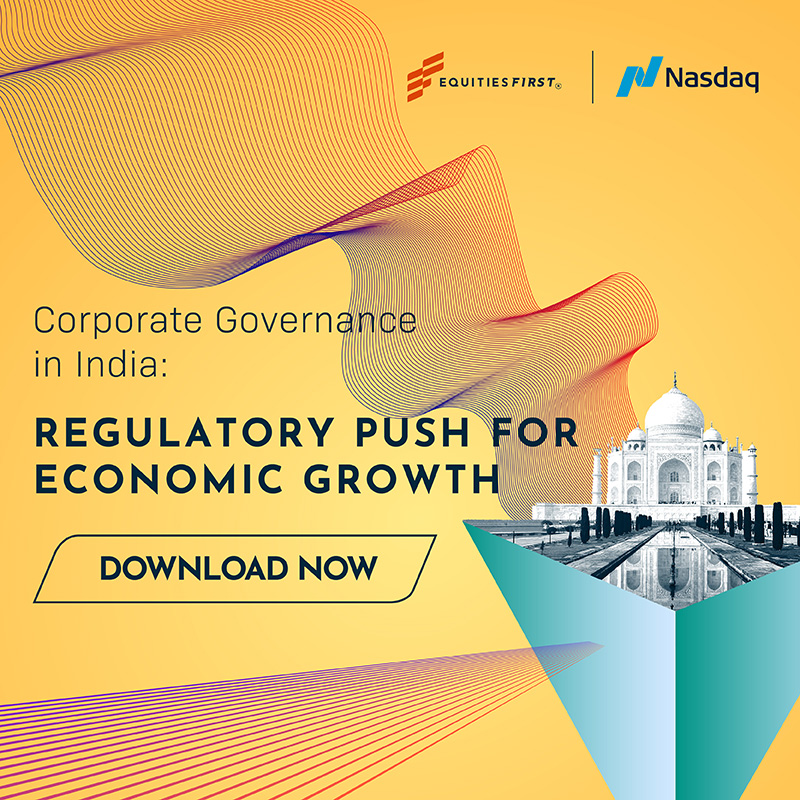EquitiesFirst has joined forces with Nasdaq Governance Solutions to publish a series of research reports on corporate governance for selected markets in APAC. We have assembled a team of experts on corporate governance in each of the subject markets to provide background and key insights on the space. These reports are for both investors in and management of listed companies focused on creating long-term value in their enterprises.
The topic areas will range from governance best practices, technological shifts, regulatory trends, communication, investor expectations and other topics tailored specifically to each of the regions.
Since India’s independence in 1947, the Indian economy has transitioned from a geo-politically shattered state to one making outstanding progress. India is on track to becoming a global economic power with robust governance frameworks set out under the Modi administration. But it begs the question, are there other ESG factors to consider when tackling the challenges that lie ahead?
Post-British rule, the Indian economy stood as a fragmented nation. However, on account of the Economic Reforms of July 1991, the country has witnessed record-breaking growth in the last three decades.
Under the ambitious tenor of the Modi Administration and the robust frameworks set out by it, the country is becoming an attractive opportunity for foreign district investments.
Keeping pace with developments at an international level, Indian institutions also established measures for rectifying corporate, social, and environmental inconsistencies. This whitepaper explores the history and effectiveness of these corporate governance measures as well as other emerging trends and ESG considerations that will help the nation rise economically, socially, and politically.
5 key takeaways from this paper are:
- Family-managed organizations still play an incremental role within the private sector
- Despite good governance practices, corporate misconduct continues to plague the economy
- The Companies Act of 2013 has augmented the position of independent directors within boards.
- The Covid pandemic highlighted many issues regarding human capital governance and societal and legal structures
- Sustainability reporting and climate-related financial disclosures are no longer stationed as cultural issues but regulatory obligations
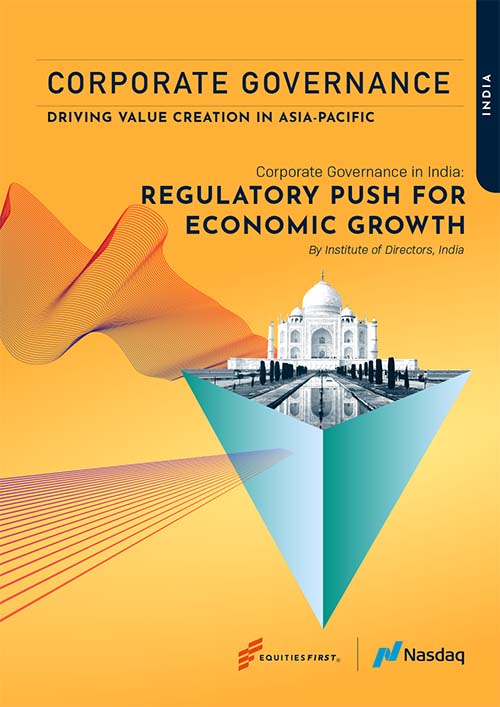
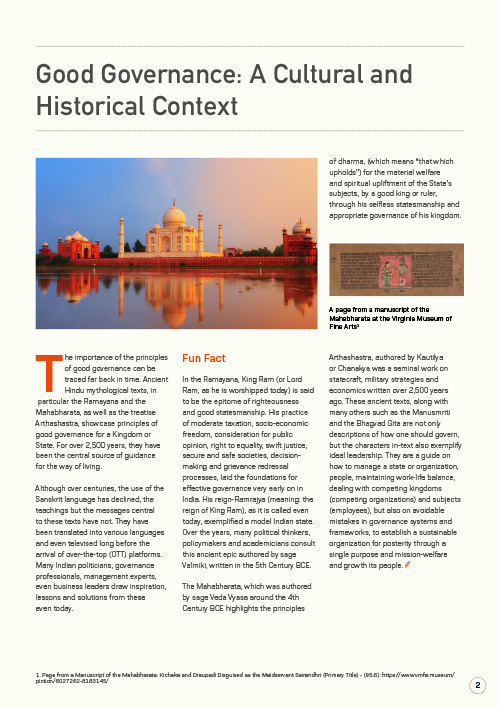
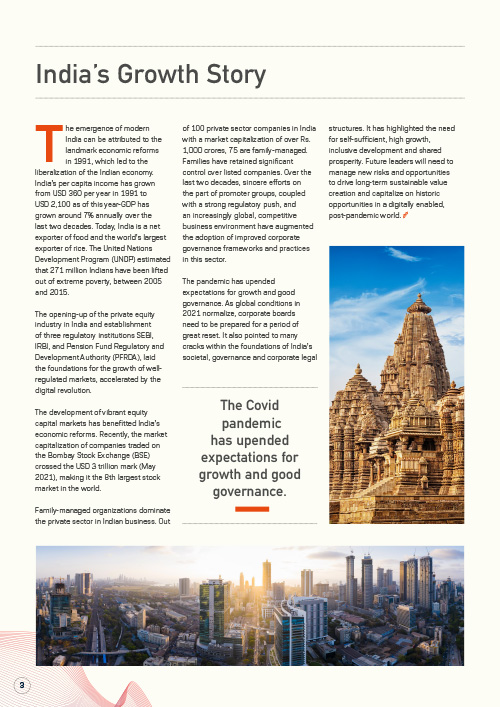
5 key takeaways from this paper are:
- Family-managed organizations still play an incremental role within the private sector
- Despite good governance practices, corporate misconduct continues to plague the economy
- The Companies Act of 2013 has augmented the position of independent directors within boards.
- The Covid pandemic highlighted many issues regarding human capital governance and societal and legal structures
- Sustainability reporting and climate-related financial disclosures are no longer stationed as cultural issues but regulatory obligations



“Corporate Governance in India: Regulatory Push for Economic Growth” was written by the Institute of Directors (IOD), India, and co-published by Nasdaq and EquitiesFirst. This project has been coordinated by Shivika Chopra, Head of the Board Research & Advisory Division at IOD, India. It is the last report in the series Corporate Governance: Driving Value Creation in Asia Pacific.
Established in 1990, the IOD, India is an association of corporate directors in India, aiming to lead businesses into social, environmental, and economic transformation through holistic boardroom strategies and practices, focusing on good governance, transparency and accountability. The organization has since grown to associate with over 30,000 senior executives from the government, PSU, and the private sector.
